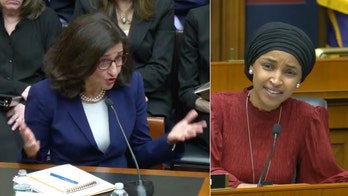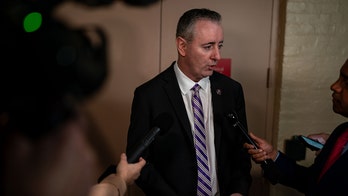A bill restricting access to driver's licenses to undocumented immigrants and to stop identification fraud was voted down Monday in Washington's state senate. The Republican backed motion to bring a vote on the bill resulted in a defeat, dealing a major blow to proponents of the measure.
In a procedural motion, Republicans asked the Senate to consider the bill, which had not been brought to the floor by Democrats, who hold the majority and control over which bills get a vote.
The motion failed 23-25 in the waning minutes of a deadline to vote on bills in their chambers of origin.
Among the "no" votes was chief sponsor Sen. Mary Margaret Haugen, D-Camano Island, but she said that she will take the issue to the governor.
"Nothing is ever dead in the Legislature. I'm going to go talk to the governor," Haugen said. "I'd ask the governor that she needs to stand and take leadership in this role. She needs to recognize what's happening in this nation."
Washington state is one of two in the country that let unauthorized immigrants obtain driver's licenses. New Mexico House of Representatives recently passed a bill that would close the access to licenses, but the bill must still face an uphill battle through the state's senate.
Gov. Chris Gregoire has said that if the Legislature passed a bill dealing with driver's licenses, she would sign it.
The bill would have required applicants for driver's license to provide proof of residency and a Social Security number. Supporters had said the bill aimed to stop identification fraud.
Haugen said that there are 300,000 more driver's licenses in this state than there are drivers.
Opponents, though, had said that it would have led the undocumentedl immigrant community to drive without licenses and car insurance.
They also said that the estimated cost of the bill - about $1.5 million in the next two-year budget - is too expensive in a year that the state faces a deficit. After the defeat, the bill appeared dead. No other licenses bill received a vote on the House. The vote was the furthest a bill dealing with the driver's license issue has ever gotten in the Legislature.
Haugen, who is the chairwoman of the Senate transportation committee, said that for years she had stopped similar bills because she was worried about the impact on the farm industry.
The senator argued that her bill would put restrictions on identification fraud by imposing stricter rules on state residency, adding that unauthorized immigrants in the state would have not been affected by the proposed law.
She said that she's concerned that if lawmakers don't act, an initiative will be approved in this state with stricter rules affecting farm workers. But attempts at such initiatives have failed in the last half a decade in the state, with organizers failing to get the signatures needed.
An aide for Democratic Senate Floor Leader Sen. Tracey Eide said she did not have time for questions. Through spokesman Jeff Reading, other Senate leadership declined to comment.
Sen. Curtis King, R-Yakima, said he was disappointed that the bill didn't get a vote, adding that he worries the state will attract more identification fraud.
"We're probably going to be the only state in the union without restrictions," King said.
Late last year, the Department of Licensing tightened rules around obtaining a license, requiring people who can't provide Social Security numbers to prove that they have state residency.
Craig Keller, organizer for Respect WA, the group that has pushed for initiatives with stricter immigration rules, said that it was a shame that the bill didn't get a full vote. "It was a start to bring some sanity to the driver's license issue," Keller said.
Pramila Jayapal, executive director of OneAmerica, whose organization lobbied against the bill, said lawmakers are trying to fill the void left by the federal government's lack of action on immigration law, but that restricting the licenses does not address immigration issues.
"This bill was a threat to road safety, would have driven up insurance premiums for everyone, and costs money that we can ill afford as a state," Jayapal said.
The Associated Press contributed to this article.
Follow us on twitter.com/foxnewslatino
Like us at facebook.com/foxnewslatino




